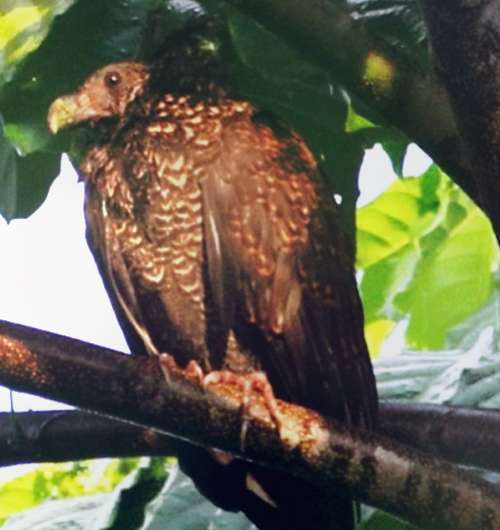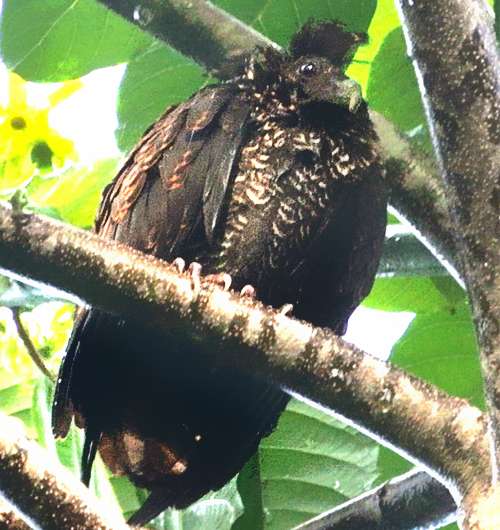Dead as a dodo? Scientists spot rare Samoan species

A team of government researchers in Samoa has announced that it has finally sighted a juvenile Manumea bird (also known as the tooth-billed pigeon or little dodo) during an intensive field search in the forests of Savai'i, Samoa's northern island.
The Manumea is endemic to Samoa and is the country's national bird. The species is currently listed as Endangered due to its small, fragmented range and population. It is thought to have declined rapidly over the last 20 years as a result of hunting and habitat loss, with numbers falling from an estimated 4,800 individuals in 1991 to no more than 200 in 2012.
According to Conservation Leadership Programme partner Birdlife International, "The lack of recent records suggests that all subpopulations may now be so small that the species may warrant uplisting to Critically Endangered in the near future."
Making informed decisions
The research, which is being supported by the Conservation Leadership Programme (CLP), forms part of the recovery plan for the Manumea, to ensure the species does not follow the fate of its infamous relative, the dodo, which was hunted to extinction by the mid-1600s.
As part of this recovery plan a scientific committee has been established, consisting of staff from the Ministry of Natural Resources and Environment, representatives from local non-government organisations and other ornithology experts from overseas.

"In order to conserve this species it is essential that the biology and ecology of the bird is known, so that informed decisions can be made," said Moeumu Uili, who is leading the team of researchers.
"Our surveys are gathering critical evidence about the existing population, current distribution, breeding season and food sources. This information will contribute greatly to effective conservation decision making, long-term species and habitat protection, and successful awareness education for the local communities."
The next step for researchers is to survey Samoa's southern island, Upolu, where some anecdotal reports have been collected. More fieldwork is needed to get the full picture, they say.
Meanwhile, the Ministry is planning a consultation process with villages where this bird has been found, to consider conservation measures for the Manumea's survival. Immediate action is very crucial at this stage especially the sites identified. Support, understanding and commitment by all our stakeholders is vital for the endurance of Manumea in Samoa.
Provided by Fauna & Flora International




















